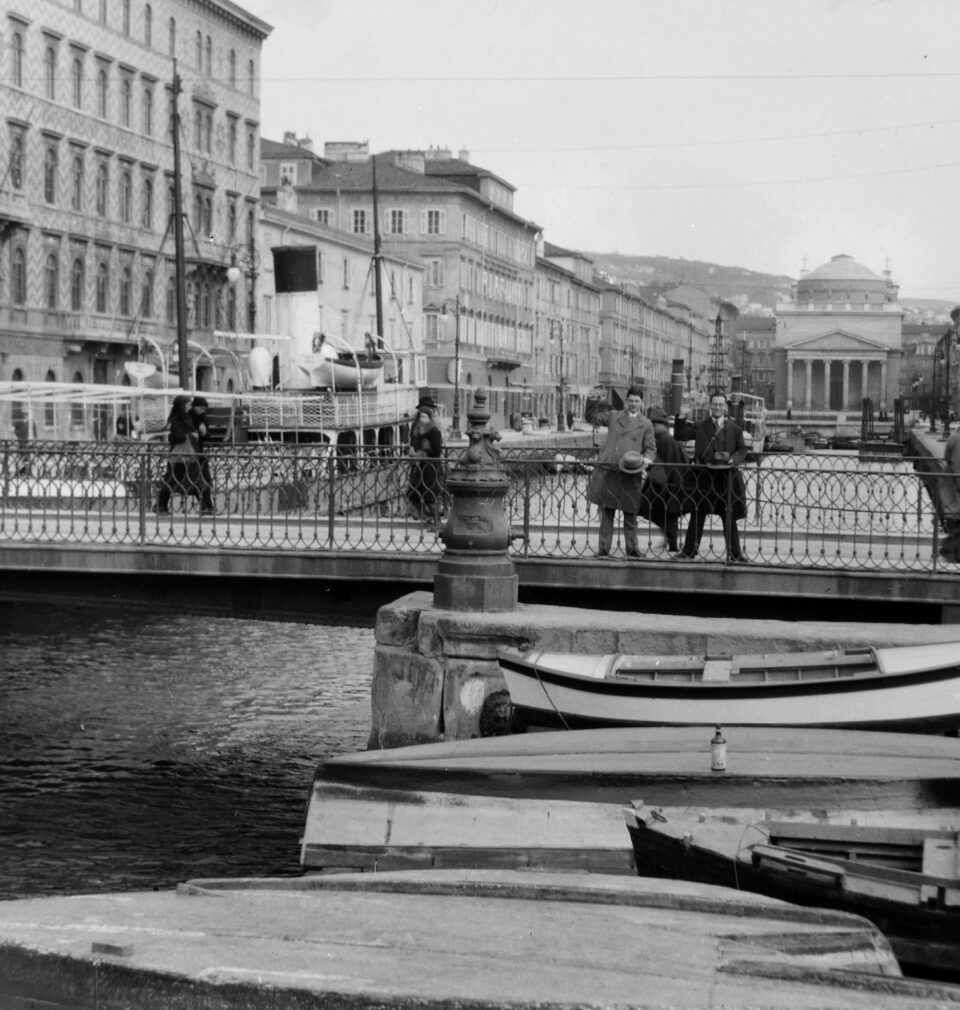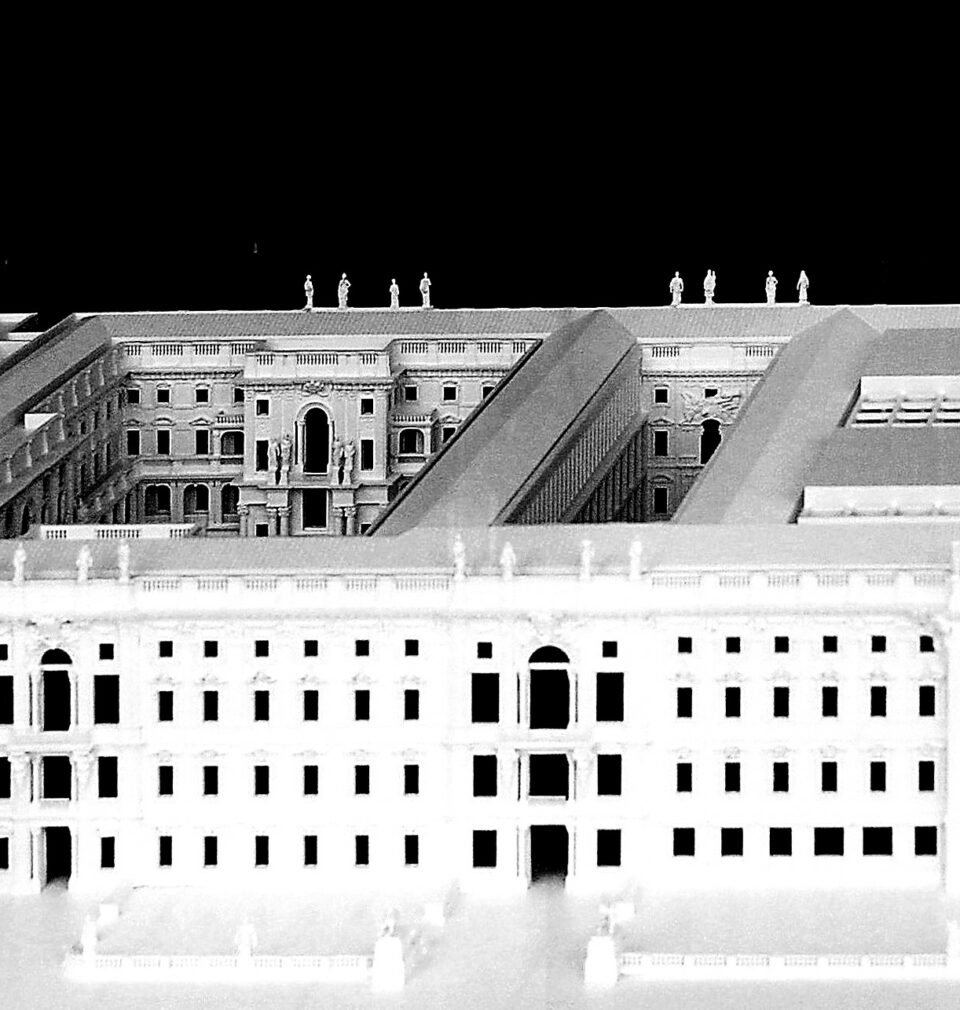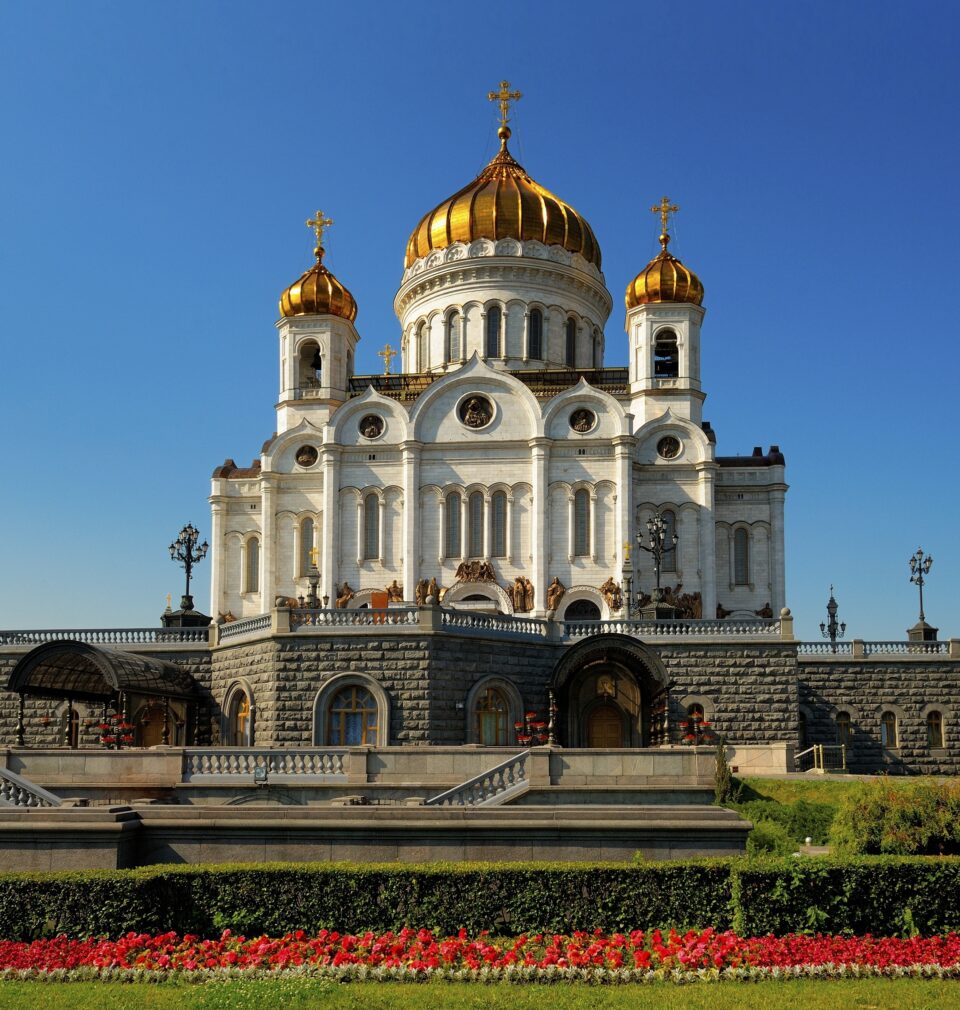
The City and the Museum
A Triestine Triptych (3)
Publication: 17 August 2021
TAGS FOR THE ARTICLE
TO THE LIST OF ARTICLESClaudio Magris wrote that Trieste is “a city living in literature and by literature, for literature provides the only space where we can find ourselves and learn who we really are.” This question haunted Florian Biesik and launched him on the writing path. Perhaps, it is quite natural that in the city of Italo Svevo a railway official became a writer.
This part of the Triestine story does not begin on the Adriatic shores, but near Bielsko, where Cieszyn Silesia (also called Austrian Silesia) borders the former Galicia. The small town of Wilamowice lies on the Galician side. For an accidental wanderer it is quite ordinary, for neither the scenery, nor the architecture make it stand out. But, for the local population it is very distinct. The source of this distinctness is the language which the Wilamowiceans once used and which they called Wymysojrysz, or “Wilamowicean”, for Wymysau means Wilamowice. It is a language incomprehensible both for the Poles and for the Germans who used to live in these parts until the end of World War II.
Historically speaking, Wilamowiceans are the last living trace of the second, thirteenth-century wave of colonisation of Silesia. We call it German colonisation, but Scottish, Frisian and Flemish settlers had also arrived here. They are more important than Germans in their ancestor capacity and this alone would make the ancient Wilamowicean a treasure. Wymysojrysz, even in the times of greatest prosperity of the town spoken by just a few hundred people, produced one poet: Florian Biesik[1]. Who knows if he would become one if he did not live and work away from his native Wilamowice. He was a student at the St. Hyacinth School in Krakow when the January Uprising broke out. For the Poles – and despite the inaccessible dialect the Wilamowiceans felt Polish – it was not an easy time, even in the Austrian Galicia, perceived as the most liberal among the Partition zones. Biesik was advised to continue his schooling in Vienna and perhaps find a better life there. And indeed, having received a good education in the Habsburg capital, he ultimately found his way to Trieste, where he became senior official (ufficio superiore) in the Southern Imperial Railways. He never left this city and died there in 1926. He spent his entire working life at the Trieste railway station, although as years went by, the feeling of pervasive alienation was growing in him. Claudio Magris wrote that Trieste is “a city living in literature and by literature, for literature provides the only space where we can find ourselves and learn who we really are.”[2] This question haunted Biesik and launched him on the writing path. Perhaps, it is quite natural that in the city of Italo Svevo a railway official became a writer. Before Biesik few had attempted to explore the origin and specific character of the Wilamowiceans and no one had tried to come to grips with this world using a writer’s pen. You may say it is a cliché that distance allows us to see our identity in a new perspective. Perhaps something like that was felt by Biesik, when he discovered on the Adriatic shore how exceptional the Wymysau and Wymysojrysz were.
The poet’s literary output comes down to just ten works. Written in Trieste, they vary in tone and intent. For example, in the poem Wymysau an Wymysojer (Wilamowice and Wilamowiceans), created between 1920 and 1922, Biesik traced the origin of his compatriots and, knowing many languages, he produced a comparative analysis and aptly showed the Anglo-Frisio-Saxon descent of the language. In his other works he recorded the occupations of the Wilamowiceans, details of clothing, he invoked historical figures and sketched portraits of contemporary Wilamowiceans, seeing them as depositaries of the centuries-long secret of survival. The most important poem, Óf jer wełt (In the Other World) from 1924, is an autobiographical work, a summary written in the twilight of life[3].
I know various languages – he revealed in the foreword – having lived in exile for half a century, but Polish and Wilamowicean remain the dearest to me, although knowing them has not earned me a single piece of bread.
Biesik was worried by the fact that Polish was little used abroad, it bothered him that although there were so many Poles scattered all over the world, not always willingly, the Polish tongue could not be heard outside the country. This made the language of Wilamowiceans look all the more fragile. Hence the passionate wish to save the beloved speech, permeating the whole poetic work by Biesik.
It is not for me to judge the literary value of this poetry and it seems to me that this is of secondary importance. In the work of the Trieste man I see the power and faith of Miłosz’s “quest for the homeland,” creating and immortalising it.
I write poetry thinking of my Wilamowiceans – confessed Biesik in the foreword to Óf jer wełt – wishing it to be a source of knowledge about the life of those who have been here before us and to serve those who will come after us. I may testify, he added, how deeply the beloved Wymysojrysz pervades my memory and my heart. I have not used it for sixty years and in my dotage I felt the desire to work on it, and comparing it with other languages, I constantly discover new values in it.
Biesik’s feelings find an uncanny echo in Miłosz’s confessions contained in the foreword to Szukanie ojczyzny: “[…] I am glad that during the many years spent in the house on Grizzly Peak […] I occupied myself with convoluted things, one of which undoubtedly was travelling in my mind from the San Francisco Bay to the places and regions of Europe of which few people have heard of.”[4] Similarly, only a handful of people could hear about Wilamowice on the Adriatic. Biesik’s Grizzly Peak was Trieste and the nearby Aurisina (Nabrežina), where he lived for a considerable stretch of his life and where he indulged in literary returns to his homeland, believing that his efforts were not in vain. In the foreword to Óf jer wełt he found in himself Mickiewicz’s banished man, who only in exile appreciated the value of the lost homeland: “he will only know who lost you,” he quoted from the opening lines of Pan Tadeusz (Sir Thaddeus). The verses of the Romantic poet were a consolation for him, which perhaps encouraged him to reach for the pen himself (in one of his poems he even tried to adapt the metre of Mickiewicz’s Pan Tadeusz to Wymysojrysz). Significantly, Biesik did not feel the need to be recognised as a writer, he summed up the chances of having his works published with “perhaps someone, some time…” He wrote by hand and made two or three copies to be sent to the loved ones in Wilamowice: his brother, his sister-in-law and postmaster Sznajder, whom he regarded as an honest and sensitive man.
My poems are intended to offer my countrymen a moment of reprieve from daily toil – he wrote in the foreword to Óf jer wełt – and for those exiled like me to recover the memory of the native land, the country of childhood.
Thinking about Biesik, I see Miłosz nearing the end of his life and like his grandfather Kunat bent over the memoirs of Jakub Gieysztor „[…] for they describe in detail our valley of the Nevėžis between Kėdainiai and Krekenava. // In my youth they did not interest me, for what was the use of what had been long ago if I cared only about the future. // Today I read these memoirs greedily, having learned to appreciate the value of place names, meanders of the road, hills and ferries on the river. // How much you have to value the countryside and the home, and dates, and traces of people who are gone.” [5]
Biesik must have believed that reminiscing on places, people and events rescued continuity. A continuity both wondrous and puzzling, for Wymysojrysz was a tongue cut off from its native land for centuries, and yet still living, although the dialects of other incomers had long expired. And then came the time when continuity of memory, speech and place was coming apart, stretched to breaking point by the forward rush of modernity.
So Biesik was faced with a task of paramount importance – the necessity of creating a language which could encompass and transport the world of Wilamowice. The epic poem Óf jer wełt, written in Wymysojrysz, was preceded by an invocation from Dante in Polish translation by Biesik: “The little boat of my fancy now sets sail.”[6] Making Dante his patron was a telling gesture. Biesik explained the reasons for this nomination in the introduction to the poem.
Everyone – he wrote – is subject to strange vagaries of fate. Such as the fact that the speech of the Tuscany peasants found its great poet in Dante, who described in it a journey through hell, purgatory and heaven, becoming the father of the Italian language. Likewise with Luther, who translated the Bible into a coarse northern dialect, and thus built the foundations for modern German. Only the Wilamowicean – he concluded – although the oldest and hence so important for dialects of German descent, had no such luck.
Florian Biesik saw himself – toutes proportions gardées – as a Wilamowice Dante, the maker of a language. He endowed Wymysojrysz with spelling and versification. He captured its sound in a literary form. He seemed to know that no dictionary was necessary, for only a poem could save a language. He chose the Polish alphabet for transcription, as best rendering the wealth of vowels, more numerous in Wymysojrysz than in other German dialects.
We might as well mention in this context Primož Trubar, a Trieste preacher and author of the first Slovenian translation of the New Testament. (Biesik confessed that Slovenian was one of the three languages, besides German and Italian, that he used every day.) Trubar illustrates a feature of our corner of the continent, where many communities existed outside history, entrusting their identity and memory only to language. Remarkably, instinct told Biesik that if something has a name and is recorded in language, it means that it exists, that it has a being. And that to survive he must create his own language.
I read in Claudio Magris that a journey is a metaphor of fate, so it may come full circle and allow you to come back home, to your own identity, but it may also follow a straight line, taking you further and further away from your old “I.” The life of Florian Biesik would be such an annihilating walk away, if he did not conjure his return by writing. And, although he never saw his native town again, the rhymes put on paper and sent home by mail fulfilled his epic journey.
There is some sense to the puzzling logic of fate, which gave Biesik a railway job and put him in touch with things in motion. The last position was of a “senior inspector,” the third highest rank after the head of the Trieste railway station and his deputy. The station must have been a very special place in those times. The railways and the transatlantic cruiser embodied the new pace of the modern world. And Biesik “rubbed shoulders” with them every day. Did he believe in the inevitability of change, so visible in the couple of hundred metres long stretch between the railway station and the sea station? We may only guess. Galicia, the poorest in the Imperial crown, and Trieste, the Empire’s most important port, its gateway to the world. So many agents of the great Trieste ship-owners toured the villages and towns of Galicia in order to tempt people with a ticket to the American paradise. I read in Magris that the Central-European civilisation is nostalgic for the sea. We could say that the Austrian railways put this nostalgia in motion and imported it to Trieste. There, between the railway platform and the pier, destiny had become more dense. Nineteenth-century railway stations were given the form of monumental portals – like gates in city walls in times of old. Magris writes that adventure and deportation are very close to each other. How many Central-European Cipiccos and Jorgensens had passed the gate of the Trieste railway station before they entrusted their fate to the indifferent sea? Perhaps this was the point, where the hope which launches you on a journey was for the first time replaced by homesickness? A few steps further, on the Trieste pier, when the foot parted with the stone edge, many took ultimate leave of their native Europe. The reason for the crisis of our world is seen by Magris in the loss of the Whole, while I see a line going away from the rolling deck, ever more indistinct and finally merging with the horizon. I look at Biesik and his railway station as a harbinger of a century of passengers and emigrants, who will populate non-places, before we elevate these figures to the rank of symbols of contemporary world. Before another railway man proposes using cattle cars to make transport of people more efficient. And before the railway storehouses in Trieste – the famous Silos – receive the Italian refugees from Dalmatia, Istria and Fiume, as described by one of them, Marisa Madieri.
When observing the passengers, and many of them embarked on a one-way journey, did Biesik feel a vague anxiety? Was this why in a poem inspired by Dante he described only the Purgatory? – the other world, where he was set by fate and whence he travelled in his thoughts to Wilamowice, a place persisting for him in an inviolable order of things. Again, we may only guess. But intuition did not fail Biesik, telling him to create the language just when it was about to fall irretrievably silent.
For unlike the surrounding Germans, Wilamowiceans did not leave the town after World War II. They did not think it was necessary, for they regarded themselves as Poles. Unfortunately, opposite the Polish language their tongue had a German sound to it. In 1945 the use of Wymysojrysz was officially prohibited. And, although the ban was lifted in 1956, the stigma and fear accompanying it were not removed. Wymysojrysz has been expiring as a family secret of the Wilamowiceans and now Biesik remains a poet for just 70 persons.
Reality is not an ally. Someone else lives in the Trieste home of the poet. We would vainly look for his grave at the St. Anne Cemetery. And rumours have it that a shopping centre will be created in the storehouses by the railway station. Only a few letters and a poem encoded in its author’s language are extant. And the possibility to talk to Biesik dwells only in imagination.
Hope speaks through a possibility, writes Maurice Blanchot[7]. For reality is not the only possibility and should be treated as less important. Possibility in a new sense, claims Blanchot, is something more than reality.
***
[1] Information on the life and work of Florian Biesik was taken from the book by Tomasz Wicherkiewicz The Making of a Language: The Case of the Idiom of Wilamowice, Southern Poland, Berlin–New York 2003.
[2] Claudio Magris, “Europa widziana z Triestu”, Zeszyty Literackie 2005 no. 90, p. 29.
[3] Biesik’s manuscript was transcribed by Tomasz Wicherkiewicz (op. cit.), who also translated the texts into English and German.
[4] Czesław Miłosz, Szukanie ojczyzny, Kraków 2001, p. 15.
[5] Czesław Miłosz, Mój dziadek Zygmunt Kunat, in To, Kraków 2000, pp. 14–15.
[6] Dante, The Divine Comedy, Purgatorio, Canto I:1–2.
[7] Maurice Blanchot, L’Entretien infini, Paris 1969, p. 14, 59, quoted in Zygmunt Bauman, Walter Benjamin – intelektualista, in Walter Benjamin, Pasaże, Rolf Tiedemann (ed.), translated by Ireneusz Kania, Kraków 2005, p. 1154.
Copyright © Herito 2020



